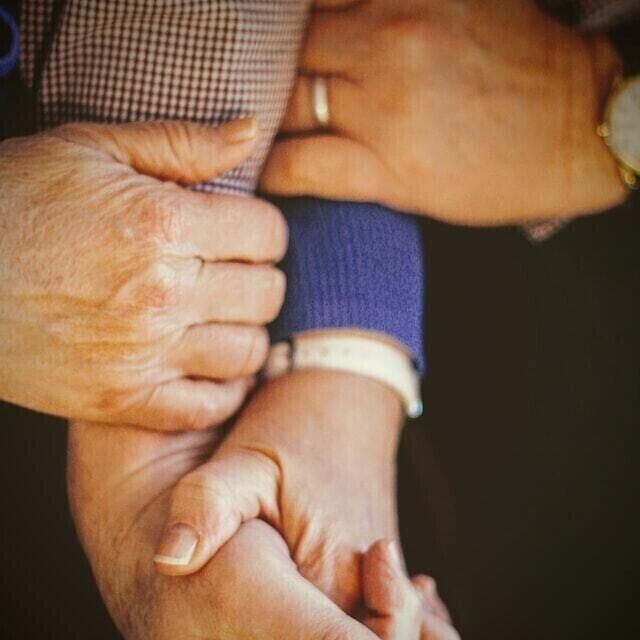Chartered Certified Inheritance Tax Accountant London
A study by HMRC in 2017-18 revealed that only 3.9%, or 24,200, of UK deaths resulted in an inheritance tax charge

What is inheritance tax
Tax on death! Inheritance tax is payable on the transfer of assets by individuals. In most cases, it is paid after one’s death, but it may also be payable on certain lifetime gifts. By way of a simple example, if your worldwide estate is worth £500k on death, and is made up of your house, which is worth £325k and cash in the bank of £175k, the beneficiaries of your estate must pay tax of £70k to HMRC. There are several tax reliefs available to a taxpayer to minimise the tax bill but almost all these reliefs require forward thinking and tax planning. Therefore, the key to paying little or no inheritance tax is to take advantage of the tax reliefs in advance. As with all tax, there is significant administrative work that is needed.
A UK domiciled individual is chargeable to inheritance on their worldwide assets. Domicile is a legal term and difficult to provide an exact definition. If you have been resident in the UK for 15 of the last 20 years, you would be considered UK domicile (double taxation relief may be available if you are taxed on your overseas asset). For IHT tax purposes, a husband and wife are treated severalty, that is, you can own assets jointly but on death the tax impact depends on how you choose to distribute the assets. The rules for IHT were originally set out in the inheritance tax act 1984.
*What is the current rate of tax on IHT*
40% on death and 20% on chargeable lifetime transfers.
*Who pays inheritance tax*
IHT is paid by an individual during their life on certain lifetime gifts. A gift not made to an individual is almost always chargeable to IHT. For example, if you transfer a property worth £100k into a limited company for your children, and you have already used up all your allowances (including the nil rate band), you will pay 20%, or £20k, IHT on this amount.
For most people, IHT is paid on death by the executor of the estate (he/she may not necessarily be one of the beneficiaries). It is the legal responsibility of an executor to complete the inheritance tax forms and get it right or they can be held liable for the shortfall. Inheritance tax changes can be a concern for an executor therefore an option therefore is to get professional executor in place, such as a specialist solicitor or an accountant. This comes at a cost, it could be 1%-5% of the estate.
*Inheritance tax nil rate band (NRB)*
This is an amount of allowance an individual has for IHT purposes. Much like the personal tax allowance for income tax, if an estate is worth less then £325k, there is no inheritance tax payable. This is one reason most people fall out of this tax. However, given the value of house prices in recent years, more and more people are getting caught.
*What is an estate for IHT purposes*
All assets a person holds minus what they owe. For example, a residence (main home), investment properties, cash and cash in the bank, household and personal goods, cars, jewellery, shares, basically everything! You can then offset credit card bills, loans, debts to 3rd parties and so forth to arrive at the estate value.
*Inheritance tax main residence*
Most people fall into inheritance tax because their main residence (home) is worth more than £325k. The government have bought in changes to help remove the tax charge on this. There is a main residence NIL rate band of £175k available to a person that protects them. It can quickly become tricky, if for example, the house is worth £425k and there is £150k of cash in the bank. Call us to discuss your personal circumstances.

Inheritance tax planning
There are several exemptions and reliefs available to avoid inheritance tax altogether. The list below contains the common scenarios for individuals and small businesses
The spouse exemption, transfer of the NIL rate band and transfer of the main residence NIL rate band
Very simply, if you transfer your estate to the spouse/civil partner, there is no charge to inheritance tax. The NIL rate band of the deceased can also be transferred to the surviving spouse (this must be claimed and should be done within 2 years after the end of the month in which the death occurs). This means the surviving spouse/civil partner has a NIL rate band of £650k.
To reduce the burden of IHT for most families, the government announced a main residence NIL rate band of £175k a few years back. This is also transferable to the surviving spouse, which means the surviving spouse could have a NIL rate band of £1m on their main residence. There are some quirks here so contact us to discuss your circumstances.
Potentially exempt transfers
If you make a gift (that is not immediately chargeable to inheritance tax) and survive 7 years after making the gift, this amount is not included within your estate for IHT purposes. By way of an example, the deceased gifted their property, worth £1m, to their daughter in 2011 and moved into a care home. On death, in 2020, they leave £500k cash to their child. Ignoring all other reliefs, the tax to pay will be £175k @ 40% (which is the amount above the £325k nil rate band). The gifting of the property is ignored and left out of the calculation because 7 years have passed since the gift. The rules also provide for taper relief, that is, a reduction in the tax payable if the deceased doesn’t survive 7 years. The taper relief applies from 3 to 7 years (providing a lower tax bill the closer one moves to 7 years. The calculations can become quite tricky in these circumstances so contact us for a quote.
Business property relief
For small business owners, this means shares held in the trading business. So, for example, if you are a furniture retailer and own 2 shops on the high street, these shares can pass to your beneficiaries without incurring IHT. The relief is automatic and given at 100% if the shares were held for 2 years. This also applies to a business or interest in a business (a holding in a partnership for example). There are of course exceptions so contact us with your personal details.*Gifts in consideration of marriage*
Gifts of up to £5,000 by a parent, £2,500 by a grandparent
Normal expenditure out of income
Payments or gifts out of normal earnings. HMRC would want to test if by making a payment of gift of cash would the taxpayer still be able to maintain their standard of living. HMRC might ask to see evidence of income and expenditure for the last 7 years so good record keeping is a must.
Annual £3k allowance
The first £3,000 of lifetime transfers in any tax year are exempt. If unused in the previous year, the amount can be bought forward.
Gifts to Charities, political parties, registered housing associations and gifts for national purposes
The estate pays tax at 36% if more than 10% of the estate is left to charity. The gifts themselves are exempt.
Life insurance policy
If you think your estate will pay tax on your death and you want to reduce/eliminate the IHT charge, you should consider purchasing a life insurance policy. The key however is to ensure it is not made payable to you in the event of death because it will form part of your estate. You should speak to a legal expert and put this into a trust document.

Writing a will
Nobody wants to write a will because nobody is planning to die. As you can see above, if you don't plan, the taxman will end up taking all your hard-earned savings and wealth. Without a valid will, the spouse exemption will be lost. It is well worth seeing a professional and putting a will in place. A will is normally signed by two witnesses. It is useful to keep it under regular review and keeping a keen ear to the ground about IHT tax changes.
Rules of intestacy
If you do not leave a will, things will get messy and eventually the whole estate could pass to the Crown! This is because the estate will pass under rules set out by parliament. The order is as follows: to the spouse, the issue, other relatives and finally to the crown. Contact us to discuss your circumstances.
Grant of probate
This is the process by which the executor, as defined by the will, is granted legal right to deal with the estate. The beneficiaries of the will cannot simply transfer/sell assets, this is done by the executor(s). A probate is not needed if the person who died had jointly owned land, property, shares or money - these will automatically pass to the surviving owners. You should contact each asset holder (for example a bank or mortgage company) to find out if you’ll need probate to get access to their assets. Every organisation has its own rules.
Final tax return
Before you can apply for probate, you must complete forms on behalf of the deceased to calculate if any tax is due. This process could quickly become complicated if the affairs of the deceased are not simple or if it is hard to locate/find paperwork (for example if you are applying to transfer the nil rate band, you would need to find a marriage certificate). You normally must pay the tax or arrange to pay in stages before you are given a grant of probate.
How we can help
- Evaluate your circumstances and provide tax planning to avoid IHT
- Assist you with completing the estate tax workings to ensure you make the correct elections and claims
- Prepare the tax calculations (for example if a potentially exempt asset comes into charge, calculate taper relief calculations)
- Fight your corner should HMRC challenge valuations or as rules change, we will keep you updated and ensure you pay as little IHT as possible


